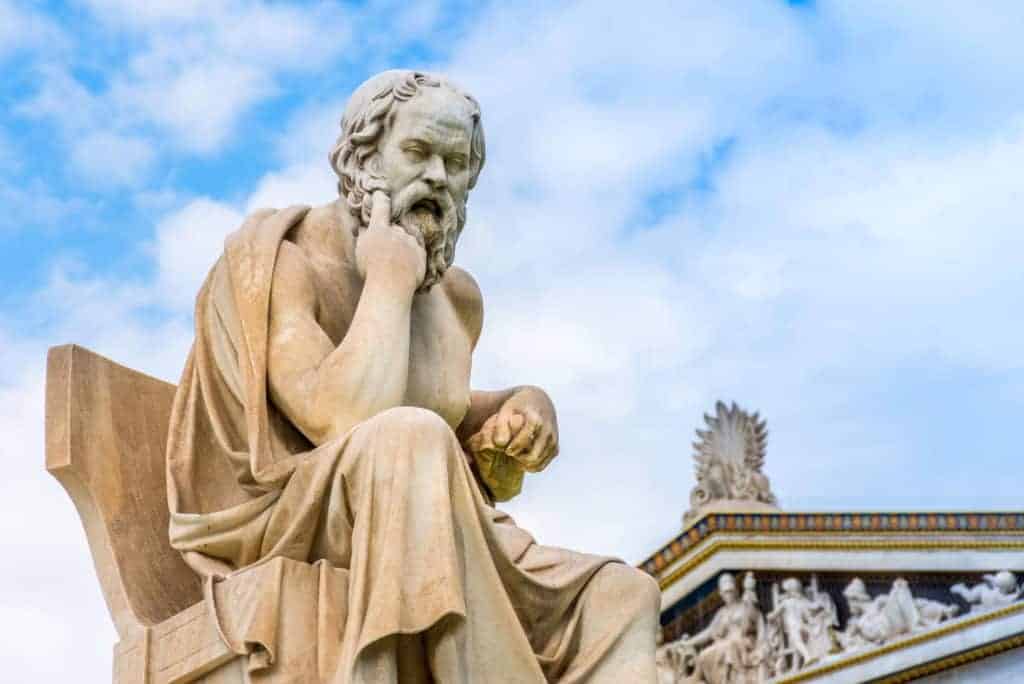Have you heard of Stoicism? Stoicism is a Greek philosophy from the 3rd century B.C. on how to live a good life, and it feels particularly relevant today. The expression, “Summum Bonum” came from Cicero, Rome’s greatest orator, and means “the highest good” in Latin, which describes stoic doctrine to a tee. However, what is the highest good? And what are we meant to be doing in this life to not only endure, but to understand universal reasoning behind all experiences? We’re going to take a look at why this ancient philosophy can provide a fresh and simpler approach to life in these difficult times, while understanding that there is truly no good or bad in this life – it’s whatever we ourselves decide to make it.
What Are the 4 Virtues of Stoicism?
In order to understand the 4 virtues of Stoicism, it’s important to understand that Stoic philosophy taught that both suffering and destructive behavior is really the result of ignorance. Does that resonate? It seems as if that is the way that we have been programmed to deal with negative occurrences in our daily lives. As human beings, we are not growing up in isolation. We are all products of each other and our environment. While none of us have the same upbringing, we’re products of our environment, and the culture we grow up in, from our family to our town or city, state, country and the world. If our everyday life is not teaching us how to deal with negative situations beyond suffering (or eradicating that suffering quickly), what other tools can we use? Enter stoicism.
1. Wisdom and Objectivity
The first virtue of stoicism is the ability to see things for what they are. Wisdom is the ability to look at something objectively, without putting our own spin on it with our own values, biases and beliefs. In Diogenes Laërtius’ Lives of the Eminent Philosophers, he describes the stoic’s definition of wisdom as “the knowledge of things good and evil and of what is neither good nor evil…knowledge of what we ought to choose, what we ought to beware of, and what is indifferent.”
2. Courage
Courage, in stoic theory, is considered the opposing force that will beat cowardice. Courage is not the absence of fear, but it is continuing to carry on and act regardless of our fears, desires or anxieties. We must tap into our ability to overcome the feeling of fear when we want something bad enough, by increasing your bravery one courageous act at a time and by surviving difficult times. Ancient Greek philosopher Epicurus describes courage, explaining “You don’t develop courage by being happy in your relationships everyday. You develop it by surviving difficult times and challenging adversity.”
I’ve recommended the following classic from the 80s, Feel the Fear and Do It Anyway, to clients for years. It’s kitschy, sure, and it’s a best seller for a reason. The idea that you can dissolve fear is bunk. Feel fear, FEEL IT! And still take action. Come out the other side having grown due to your courage and perseverance.
3. Justice
The stoic virtue of justice has a slightly different meaning in ancient philosophy than it does in our language today. Justice today means the morally fair and right state of everything. It also means treating everyone equally, or how they would like to be treated. For the Stoics, justice is a similar concept, but goes beyond our definition of justice. Justice for the Stoics is living up to their duty to both their fellow man, and to their society. It focuses on not only morality, but providing support for those who need it and giving back to their community. Justice is, in summary, the act of benefiting the community in any way we can.
4. Temperance
Temperance is the opposite of greed and gluttony and is focused around self-discipline and control. It focuses on our long-term well-being over short term satisfaction and helps us detach our well-being from dependence on material goods. While giving up all material goods is not exactly necessary to living a Stoic life, it cannot be denied that as a society, the dependence we have on material goods is one of the extreme.
Why is Stoicism Important Today?
Two things are clear in this time of self-isolation and self-quarantine – we have not chosen to be in a pandemic, and we’d like to go back to normal. Unfortunately, going back to how things were is not an option. So, what can we learn from the Stoics in order to help us through this incredibly difficult time? How do we take from the four virtues of stoicism and turn them into something that can help us get through not only day-to-day negative occurrences in our lives, but a global pandemic?
The Stoics have taught us that we need to accept what happens and to focus on only what is within our control. So, in relation to the global pandemic, we know we ultimately cannot control it – but there are some things we can control. We can control our response and to make sure as individuals that we’re doing our part. We can control that we wake up in the morning and don’t sit in our bed and wallow in self misery. We can still go to work, spend quality time with our children, and we can call an elderly neighbor who’s ailing. Ultimately, we can control ourselves and our attitude.
It cannot be denied that things are incredibly difficult in the world right now, at present count with 20 million cases of COVID-19 globally, and close to one million deaths. And unfortunately, this is likely going to continue for the foreseeable future. What you must ask yourself when you hear this news, is, “Can I control that?” For the great majority of us, the answer is no. What you can control is what you can do for your family and your group. You can control your response and you can choose not to constantly read the news. You can take a walk, go fishing, jump in a lake, and do your work. It’s important to remember that we’re not trying to bury our heads in the sand and pretend that a pandemic is not happening. However, we cannot dwell on what is outside our control.
Choosing to Think Positively
There is a quote by Epictetus, the Greek Stoic philosopher, that says, “It’s not things that trouble us, but our interpretation of things.” Meaning, it’s our opinions about the world that upset us, not the actual events themselves. We cannot take away from the fact that as human beings, we mourn. Mourning is an important part of life and signifies loss.
If we are looking at the greater meaning of life, especially if you meditate, you know that events are neutral. COVID-19 is certainly not a positive thing in itself. However, from an environmental perspective, it has started to reset our planet and pushed us forward with new technologies that may decrease our carbon footprint. From that perspective, part of this epidemic’s impact may be positive.
A Stoic Perspective
Bestselling author Ryan Holiday discusses an important quote in his masterclass on the Calm meditation app, which is that “A good person dyes events with his own color and turns whatever happens to his own benefit.” This brings us back to the reality that things are neutral, and they are neither good nor bad. It is us, as human beings, who ascribe value to them. And all we can truly do when negative events occur is to choose to tag them positively, by dying them with our own color, and find how the occurrence will be beneficial in any way, shape, or form.
The fact that we are experiencing a global pandemic is something that we never thought we’d experience in our lifetime. It’s okay to mourn. This is going to be an adjusted life that we’re going to walk back into slowly. But we always need to focus on appreciating what we have, that we are alive, and how to move forward. Check in with yourself, your body, your mind, your people, and your environment. Keep learning and loving, focus on getting out there, and stay engaged.
I promise you that meaning will come when you are engaged in the world.



